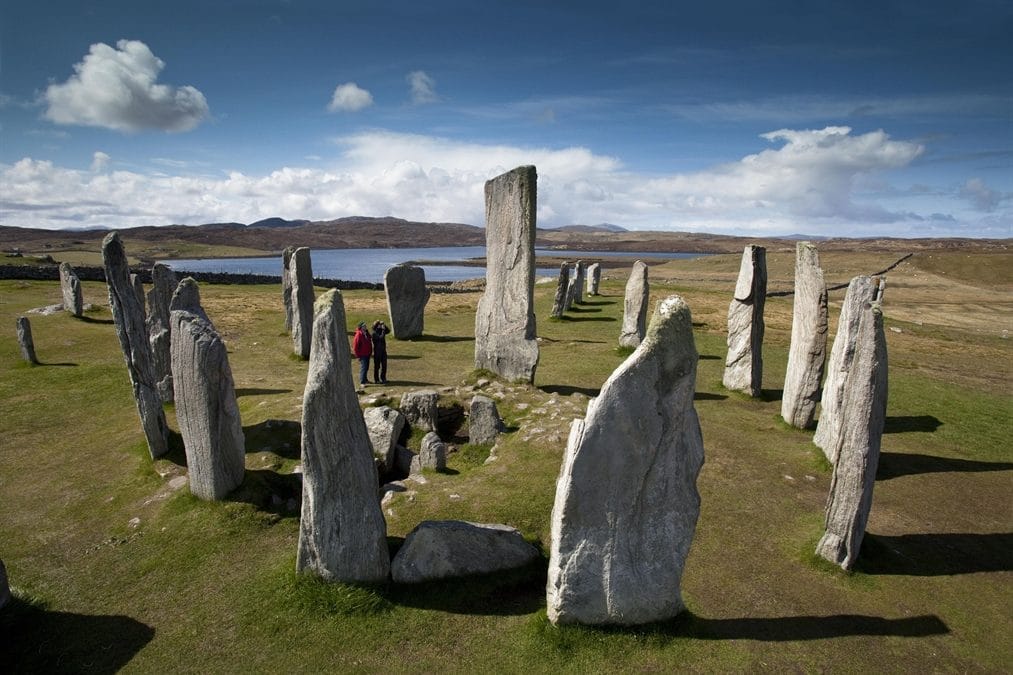On the western edge of the Isle of Lewis in the Outer Hebrides, overlooking the waters of Loch Roag, stand the mysterious Calanais standing stones. Erected around 5000 years ago, the stones form a circle surrounded by a cruciform shape, and are believed to have been an important site of ritual activity during the Bronze Age. A chambered tomb is also contained within the site but this is believed to have been added at a later date. Numerous other sites lie nearby, many within view of the main site, including several other stone circles and single stones. It is believed that this area was a focus for ritual and religious activity for over 1500 years, before finally being abandoned around 800 BCE.
So why are the stones here and what purpose did they serve? It is generally assumed that the stones at Calanais functioned as an astronomical lunar calendar. The moon’s position in relation to the visible horizon varies over time, peaking every 18.61 years. The Calanais Stones accurately mark this cycle.
At the major lunar standstill (the moon’s most northerly position in the night sky during the 18 year cycle) the moon aligns with the southern hills. The shape of the hills form the silhouette of a woman, known as “Cailleach na Mointeach” or the Old Woman of the Moors. The moon rises at the feet of the Old Woman, and slowly travels along the ridge of the hills, framed by the stones.
The next major lunar standstill will occur in April 2025 but you don’t need to leave it until then to visit the Isle of Lewis! The stones are a wonderful place to visit, whatever the season.
Stone circles and standing stones are a fairly common feature of the landscape here in Scotland. There are many carved Pictish stones, particularly in the north east, and Kilmartin Glen in Argyll boasts the highest concentration of Neolithic and Bronze Age remains in mainland Scotland. If you are as fascinated as we are by our distant ancestors then please just let us know, and we can build your tour around visits to some of Scotland’s most intriguing prehistoric sites.
Related posts
Whoops! No connected account found. Try connecting an account first.



